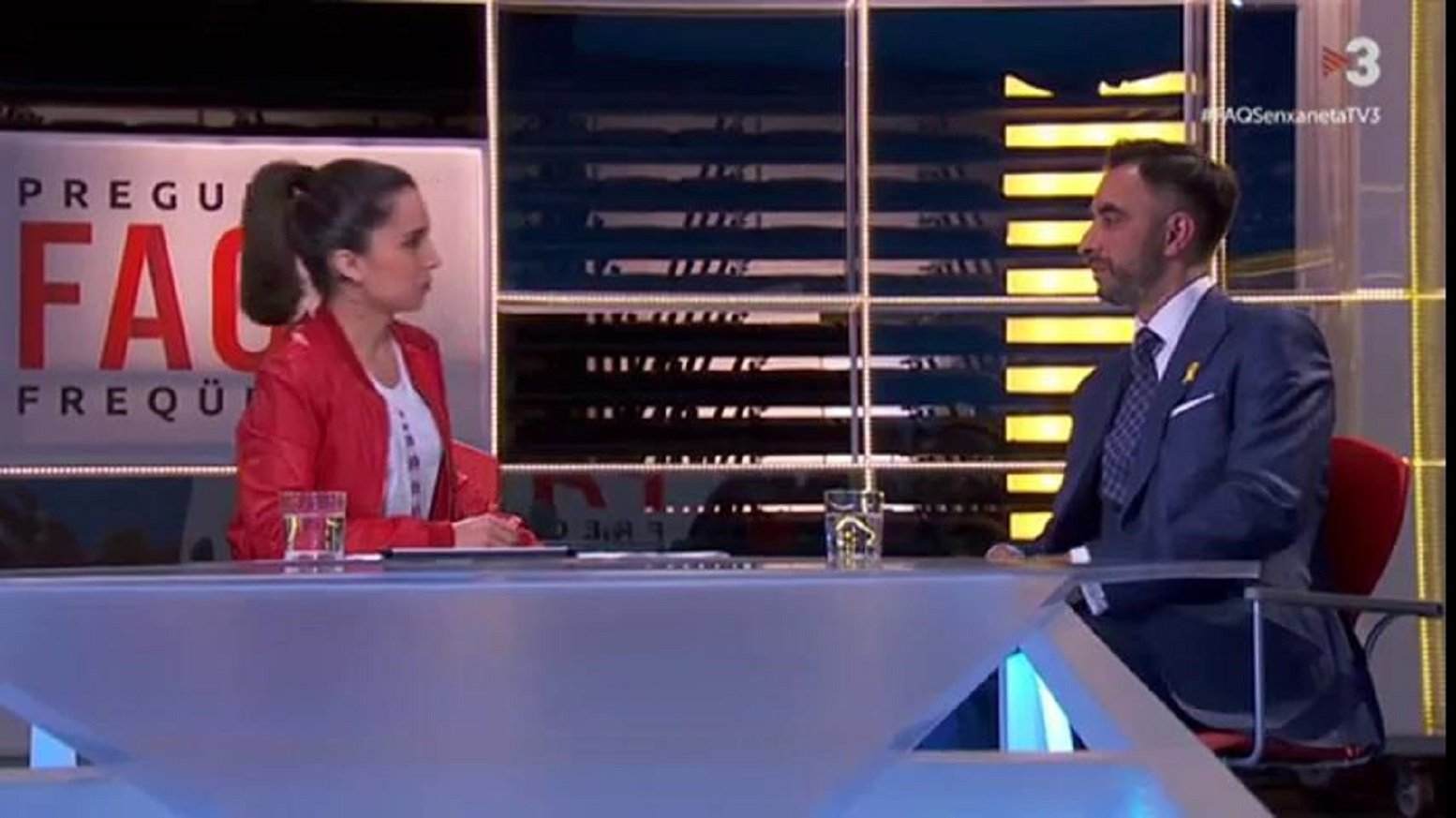The change in the criteria used by Spanish Supreme Court judge Pablo Llarena in the independence-related accusations against Catalan leaders, has had its consequences. Judge Llarena's move, which has now opened the door to a reduction in the severity of the charges, has caused the Spanish justice system to lose credibility. This is the view of human rights lawyer Aamer Anwar, who is conducting the defence of exiled Catalan minister Clara Ponsatí. As Anwar told Catalonia public television on Saturday night, "Spanish law is no longer respected in Europe because people are now starting to ask themselves how it is possible for them to do this. You can't lay one charge one day and then the next day change it and then change it again".
Anwar's comments were part of an extensive interview on the programme FAQS, in which he also pointed out that he had "not seen any member of the police forces being prosecuted for the violence on the day of the referendum", while on the other hand, a prosecution was underway against "the hero of the hour, the officer who stopped the terrorists" - a reference to the chief of the Catalan Mossos d'Esquadra police force Josep Lluís Trapero, who successfully led the response to the Jihadist attacks on Catalonia last August and was swiftly stripped of his job after the October referendum.
(Note: TV sound in video clips is dubbed in Catalan)
@AamerAnwar "does not respect the Spanish right to Europe any more" in #FAQSenxanetaTV3 https://t.co/vC8czZ0JFF pic.twitter.com/jiw31A0nkO
— Frequent questions (@FAQSTV3) 12 of May 2018
Anwar, who reiterated that "the courts know you can't keep on changing the rules to make a charge fit", recalled that "in Scotland we don't have offences of sedition or rebellion" in the criminal code, and he explained the difference between Spanish and Scottish justice by drawing a comparison: "clients of mine who are accused of killing somebody may not spend 25 years in prison", so why, he asked, do pro-independence leaders have to face sentences of "25 years for having organized a vote?"
Convinced that "the Spanish judicial system is not independent and what they are doing with Clara Ponsatí and the other exiled leaders is political persecution aimed at silencing the Catalans", Anwar also raised the question of "if this is a political persecution, how can it be impartial? How can it be fair? Why they should trust the Spanish justice system?" At the same time he asked with respect to his client Clara Ponsatí: "Where is the part in the report where it says she resorted to truncheons" or where "she hit a policeman?" - given that in the accusation she is alleged to be guilty of rebellion with violence.
Death penalty
According to the Catalan minister's lawyer, "the sentence that Ponsatí is facing is almost like a death penalty, taking into account that she is 61 years old" because, "if she has to spend 33 years in prison, it's like a death penalty", he argued. On this count, he had harsh words for the Supreme Court, saying "they're not God, but they're acting like God".
In this regard, Anwar pointed out that "I describe what is happening as the shadow of Franco" because, he said, "it is about the abuse of human rights". "It is as if Franco were still alive and he was telling the police that they should be silencing the voice of the Catalans". "This is an abuse of human rights", he repeated, adding that "the issuing of the European arrest warrants is an attempt to criminalize the aspirations of the people".
Ponsatí's lawyer not only considers that the influence of the dictator continues to live on in the events relating to the independence movement, but also in other areas: "it is typical of dictatorships," he says, "that a government undertakes measures against people who use poetry or music" - a reference in particular to two recent cases where Spanish rappers were sentenced to prison sentences of 3-4 years each. He recalled that "this happened under dictatorship and fascism" and declared that it was "disgraceful and shameful, and all of Spain should be rising up against it and saying they do not accept it" because, Anwar exclaimed, "Franco's supposed to be dead!"
The lawyer's view is that "in Catalonia, the law of the Spanish state is applied and it is not just, as Catalonia has its own government". He made a comparison between the Catalan situation and what would happen "if Scotland's leader Nicola Sturgeon decided that she wanted a vote on independence and British prime minister Theresa May sent 7,000 members of the metropolitan police to use violence." If this happened, said Anwar, "we would be independent within 24 hours because that's not the rule of law, it's oppression, dictatorship, colonialism".
"In Catalonia" @AamerAnwar "applies the Spanish democracy to itself|himself|herself" in #FAQSenxanetaTV3 https://t.co/vC8czZ0JFF pic.twitter.com/CNkIMcHBYc
— Frequent questions (@FAQSTV3) 12 of May 2018
Anwar concluded by sending a clear message to the Spanish state, saying that "this has to be solved through peaceful negotiation, not shutting people up for having allowed a vote." "One after the other, European countries will end up realising that this is unacceptable", he warned.
Finally, he also left a question in the air: "how you can evade justice, if there is no justice?"
"The best thing that the Spanish government could have done is to have allowed the holding of a referendum," he concluded.

